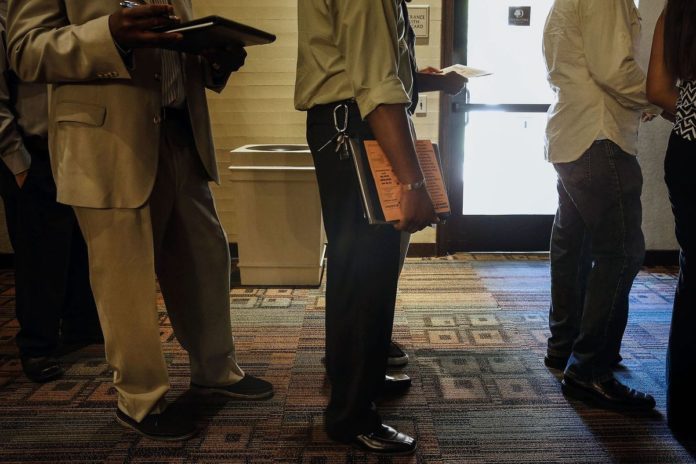
WASHINGTON – Filings for U.S. unemployment benefits rose to a seven-week high, representing a departure from other data showing a solid labor market.
Jobless claims increased by 15,000 to 258,000 in the week ended March 18, a Labor Department report showed Thursday. The median forecast in a Bloomberg survey called for 240,000. On an unadjusted basis, applications jumped in Ohio and Kansas.
Even with the pickup in claims last week, hiring managers have been slow to dismiss workers as the labor market tightens and job vacancies become harder to fill with skilled and experienced employees. Companies also have been adding to payrolls at a healthy pace and gradually increasing wages.
Estimates in the Bloomberg survey ranged from 220,000 to 255,000. The Labor Department revised the prior week’s reading to 243,000 from an initially reported 241,000.
Thursday’s report also included annual revisions for both initial and continuing claims back through 2012. The latest reading marked 80 straight weeks of filings below 300,000, the level economists consider consistent with a healthy labor market. Before the annual revisions, the streak had been at 106 weeks.
No states were estimated last week and there was nothing unusual in the data, according to the Labor Department. In Ohio, applications climbed 4,260 before seasonal adjustment, while jobless claims in Kansas increased by 2,774.
The four-week average for all jobless claims rose to 240,000 from 239,000 in the prior week.
The number of people continuing to receive jobless benefits decreased by 39,000 to 2 million in the week ended March 11. The unemployment rate among people eligible for benefits dropped to 1.4 percent from 1.5 percent. These data are reported with a one-week lag.











